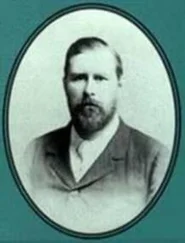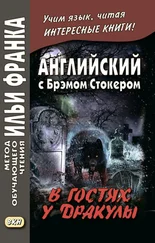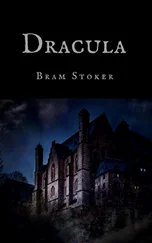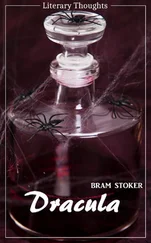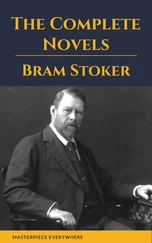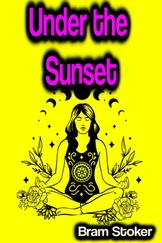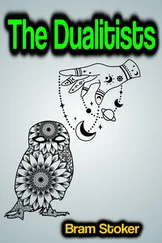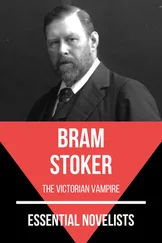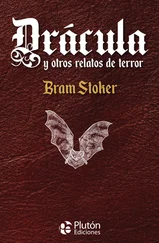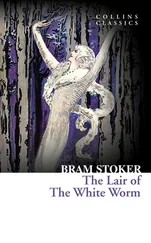Bram Stoker - The Censorship of Fiction
Здесь есть возможность читать онлайн «Bram Stoker - The Censorship of Fiction» весь текст электронной книги совершенно бесплатно (целиком полную версию без сокращений). В некоторых случаях можно слушать аудио, скачать через торрент в формате fb2 и присутствует краткое содержание. Город: New York, Год выпуска: 1908, Издательство: Leonard Scott Publication Co., Жанр: Прочая научная литература, на английском языке. Описание произведения, (предисловие) а так же отзывы посетителей доступны на портале библиотеки ЛибКат.
- Название:The Censorship of Fiction
- Автор:
- Издательство:Leonard Scott Publication Co.
- Жанр:
- Год:1908
- Город:New York
- ISBN:нет данных
- Рейтинг книги:3 / 5. Голосов: 1
-
Избранное:Добавить в избранное
- Отзывы:
-
Ваша оценка:
- 60
- 1
- 2
- 3
- 4
- 5
The Censorship of Fiction: краткое содержание, описание и аннотация
Предлагаем к чтению аннотацию, описание, краткое содержание или предисловие (зависит от того, что написал сам автор книги «The Censorship of Fiction»). Если вы не нашли необходимую информацию о книге — напишите в комментариях, мы постараемся отыскать её.
The Censorship of Fiction — читать онлайн бесплатно полную книгу (весь текст) целиком
Ниже представлен текст книги, разбитый по страницам. Система сохранения места последней прочитанной страницы, позволяет с удобством читать онлайн бесплатно книгу «The Censorship of Fiction», без необходимости каждый раз заново искать на чём Вы остановились. Поставьте закладку, и сможете в любой момент перейти на страницу, на которой закончили чтение.
Интервал:
Закладка:
For while the tired waves, vainly breaking,
Seem here no painful inch to gain,
Far back, through creeks and inlets making,
Comes silent, flooding in, the main.
What use is it, then, in the great scheme of national life, to guard against evil in one form whilst in another form it is free to act? In all things of which suggestion is a part there is a possible element of evil. Even in imagination, of whose products the best known and most potent is perhaps fiction, there is a danger of corruption. For imagination is not limited to materials of a special kind; there is no assorted and approved stock of raw material for its use. The whole worlds of fact and fancy arc open to it. This is its strength, and those who have imagination and believe in its power as a working factor in education—and so making for good—may well be jealous of its privileges, not the least amongst which is its freedom. Its weakness on its assailable side is that it is absolutely and entirely personal. To what Walt Whitman calls ‘the en masse ’ imagination does not apply, does not appeal. If the ‘en masse’ feels its effects it does so not as a unit but as a congeries of individuals; a wave there may be, but it is a wave of integers dominated by a common thought or purpose. This being so, the strongest controlling force of imagination is in the individual with whom it originates. No one has power to stop the workings of imagination, not even the individual whose sensoria afford its source. But the individual producer or recorder can control his own utterances; he may have to feel, but he need not of necessity speak or write. And so individual discretion is the first line of defence against such evils as may come from imagination— itself pure, a process of thought, working unintentionally with impure or dangerous material. To the drama as written this argument applies; to the play as acted it does not. The dramatist like any other person of imagination can control his output in the first instance. And like any other writer he has been, up to the present, free to print his work; his publishing it being simply subject to ordinary police control. It is on the stage and acting side that the censorship as existing comes in. Of course it must be borne in mind that if the evil is traceable to thoughts as set forth in words, the words must then come into the purview and under the knife of the censor. But up to the point of stage use the dramatist has the same freedom as any other writer of fiction.
Now as to the possible evils of imagination. Wherein or of what kinds are or may such be? We shall, I think, on considering the matter, find that they are entirely limited to evil effects produced on the senses. Here I speak only on the ethical side; there may be evils of revolt against political or social laws, but in such case the work of imagination, novel or drama, must be taken as an educational machine or medium only. Imagination does not appeal to a nation except through its units, and so must be taken as dealing with individuals only, though its effects may ultimately become of general, if not of universal import. As example, in a base play given in a crowded theatre, though many may be gratified and so debased by the exposition of lewd suggestion—either verbal or of movement or appearance—there are others who will bo disgusted. It is through the corruption of individuals that the harm is done. A close analysis will show that the only emotions which in the long run harm are those arising from sex impulses, and when we have realised this we have put a finger on the actual point of danger. Practically in this country the danger from unacted plays has not up to the present existed. English people do not as a rule read plays; they prefer to see them acted. This is no doubt largely due to the fact that for a couple of centuries the plays that have been published, having already for stage purposes passed the censor, have had any passages considered objectionable or suggestive of evil deleted. As a practical matter they are as a rule but dull reading to those who look for salacious matter. Truly even the plays of the Restoration period and after, when Congreve, Wycherley, Farquhar and Mrs. Aphra Behn flourished, were written to suit a debased public taste; even these are but. tame affairs compared with some of the work of our novelists. But if the growing custom continues of publishing as literary works stage plays forbidden for that purpose by the censor, the public may—will—end by reading them in the hope of finding offensive matter. They will bring to the study for evil motives an ardour denied for purposes of good.
I may perhaps here explain that I speak of ‘ the censor * for purposes of clearness and brevity. We have a certain censorship over plays, but there is no such official as ‘the censor.’ By the Theatres Act the work of supervision of the stage is entrusted to the Lord Chamberlain, and it is a part of the duty of that functionary to issue the licence decreed by the Act as a necessary preliminary to the production of the play in a licensed theatre. For convenience—since he naturally cannot do such a mass of work himself—the Lord Chamberlain deputes a well-qualified gentleman to make the necessary examination of the plays submitted for licence. It is this gentleman to whom is applied the term ‘censor’ by the writers of letters to newspapers and of articles in magazines who clamour against ‘oppression’ and call aloud for absolute freedom of subject and treatment of stage productions.
Here we come to a point at which for our present purpose we may speak of ‘fiction’ as containing both the forms of imaginative fiction, the novel and the drama. If we take it as ‘published’ fiction we can exclude all considerations of the drama, as the word fiction will include all sorts of literary effort as applied to imaginative work, of which the drama is but an accepted form. Henceforth in this article we must take fiction to mean published fiction, irrespective of form or size. By this means the matter narrows itself down to its simplest form, and we find ourselves face to face with the question: Are we or are we not ultimately to allow fiction to be put forth without any form of restraint whatever? The question is not merely a civic or national one. It is racial, all-embracing, human. Fiction is perhaps the mast powerful form of teaching available. It can be most potent for good; and if we are to allow it to work for evil we shall surely have to pay in time for the consequent evil effects. Let not anyone with a non-understanding or misapplied moral sense say or believe that fiction, being essentially based on something that is not true, should be excluded altogether from the field of morals. The highest of all teachers and moralists, Christ Himself, did not disdain it as a method or opportunity of carrying great truth. But He seemed to hold it as His chosen means of seeking to instil truth. What is a parable but a novel in little? A parable may be true in historical fact—its ethical truth may be complete, but if so the truth is accidental and not essential. When those who listened to the Master were told that ‘a sower went forth to sow,’ or that ‘a certain man planted a vineyard, and set an hedge about it,’ or ‘a certain man made a great supper, and bade many,’ or ‘two men went up into the Temple to pray,’ did they believe, or were they intended to believe, that they were being treated to a scrap of veracious history? No. The purpose of the Teacher was to win their hearts through the force of imagination. If there be any doubt of this, read the parable of Dives and Lazarus. Here the Master, who knew the workings of heart and brain, did not hesitate to give even presumably fictitious details which might enhance the force and conviction of His story—just as a novelist of to-day does. He followed the two men into the divisions of the ‘under world,’ and even heightened the scenic effect by the suggestion of a great gulf between the two. When Christ taught in such a way, are we to reprobate the method or even to forego it? Should we not rather encourage and protect so potent a form of teaching, and guard it against evil use?
Читать дальшеИнтервал:
Закладка:
Похожие книги на «The Censorship of Fiction»
Представляем Вашему вниманию похожие книги на «The Censorship of Fiction» списком для выбора. Мы отобрали схожую по названию и смыслу литературу в надежде предоставить читателям больше вариантов отыскать новые, интересные, ещё непрочитанные произведения.
Обсуждение, отзывы о книге «The Censorship of Fiction» и просто собственные мнения читателей. Оставьте ваши комментарии, напишите, что Вы думаете о произведении, его смысле или главных героях. Укажите что конкретно понравилось, а что нет, и почему Вы так считаете.

